Filter by
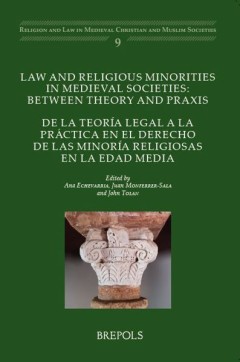
Law and Religious Minorities in Medieval Societies
This volume shows through the use of legal sources that law was used to try to erect boundaries between communities in order to regulate or restrict interaction between the faithful and the non-faithful; and at the same time shows how these boundaries were repeatedly transgressed and negotiated. Muslim law developed a clear legal cadre for dhimmīs, inferior but protected non-Muslim communities…
- Edition
- -
- ISBN/ISSN
- 9782503566948
- Collation
- -
- Series Title
- -
- Call Number
- -

Jews and Christians in Medieval Europe
The name of Bernhard Blumenkranz is well known to all those who study the history of European Jews in the Middle Ages and in particular the history of Jewish-Christian relations. Blumenkranz was born in Vienna in 1913; he left for Switzerland during the war and obtained a doctorate at the University of Basel on the portrayal of Jews in the works of Augustine. He subsequently moved to France whe…
- Edition
- -
- ISBN/ISSN
- 9782503565166
- Collation
- -
- Series Title
- -
- Call Number
- -
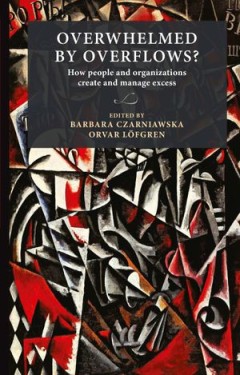
Overwhelmed by overflows?
This transdisciplinary volume investigates the ways in which people and organisations deal with the overflow of information, goods or choices. It explores two main themes: the emergence of overflows and the management of overflows, in the sense of either controlling or coping with them. Individual chapters show the management of overflows taking place in various social settings, periods and pol…
- Edition
- -
- ISBN/ISSN
- 9789198469813
- Collation
- -
- Series Title
- -
- Call Number
- -
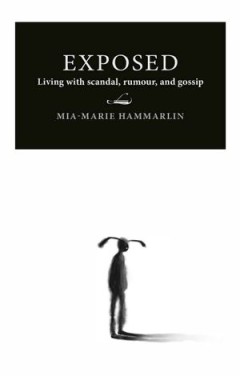
Exposed Living with scandal, rumour, and gossip
This book illuminates the personal experience of being at the centre of a media scandal. The existential level of that experience is highlighted by means of the application of ethnological and phenomenological perspectives to extensive empirical material drawn from a Swedish context. The questions raised and answered in this book include the following: How does the experience of being the prota…
- Edition
- -
- ISBN/ISSN
- 9789198376845
- Collation
- -
- Series Title
- -
- Call Number
- -

Ancrene Wisse
Provides an introduction to "Ancrene Wisse", one of the most important works in English of the thirteenth century. This book offers a fresh contextualisation which engages with the history of lay piety and vernacular spirituality in the Middle Ages. This book is innovative in that it provides an introduction to "Ancrene Wisse", one of the most important works in English of the thirteenth centur…
- Edition
- -
- ISBN/ISSN
- 9780708320341
- Collation
- -
- Series Title
- -
- Call Number
- -
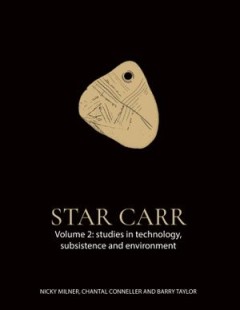
Star Carr Volume 2
Star Carr is one of the most important Mesolithic sites in Europe. It was discovered in the late 1940s by John Moore and then excavated by Grahame Clark from 1949-1951, becoming famous in the archaeological world for the wealth of rare organic remains uncovered including barbed antler points and antler headdresses. However, since the original excavations there has been much debate about how the…
- Edition
- -
- ISBN/ISSN
- 9781912482009
- Collation
- -
- Series Title
- -
- Call Number
- -

Star Carr Volume 1
Star Carr is one of the most important Mesolithic sites in Europe. It was discovered in the late 1940s by John Moore and then excavated by Grahame Clark from 1949-1951, becoming famous in the archaeological world for the wealth of rare organic remains uncovered including barbed antler points and antler headdresses. However, since the original excavations there has been much debate about how the…
- Edition
- -
- ISBN/ISSN
- 9781912482047
- Collation
- -
- Series Title
- -
- Call Number
- -

Mortuary Theory, Pottery and Social Complexity at Jebel Moya Cemetery, South-…
archaeology - hunter-gatherers - early food producing societies - Northeastern Africa
- Edition
- -
- ISBN/ISSN
- 9788360109434
- Collation
- -
- Series Title
- -
- Call Number
- -
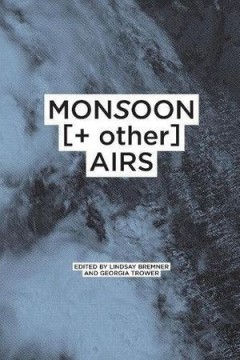
Monsoon [+ other] Airs
Monsoon Assemblages is a research project funded by the European Research Council (ERC) under the European Union’s Horizon 2020 research and innovation programme (Grant Agreement No. 697873). Monsoon [+ other] Airs is the first of three publications by Monsoon Assemblages arising from symposia held at the University of Westminster (2017-2019). These form part of its agenda to foster interdisc…
- Edition
- -
- ISBN/ISSN
- 9781999938505
- Collation
- -
- Series Title
- -
- Call Number
- -
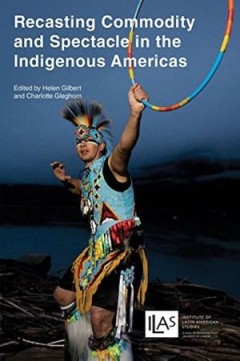
Recasting commodity and spectacle in the indigenous Americas
Indigenous artists frequently voice concerns over the commodification of their cultures, a process acutely felt by those living with the consequences of colonialism. This timely book, which features colour illustrations throughout, examines the ways in which contemporary indigenous peoples in different parts of the Americas have harnessed performance practices to resist imposed stereotypes and …
- Edition
- -
- ISBN/ISSN
- 9781908857088
- Collation
- -
- Series Title
- -
- Call Number
- -
 Computer Science, Information & General Works
Computer Science, Information & General Works  Philosophy & Psychology
Philosophy & Psychology  Religion
Religion  Social Sciences
Social Sciences  Language
Language  Pure Science
Pure Science  Applied Sciences
Applied Sciences  Art & Recreation
Art & Recreation  Literature
Literature  History & Geography
History & Geography